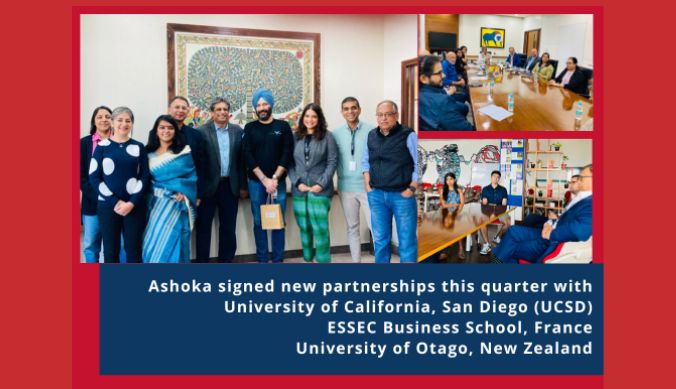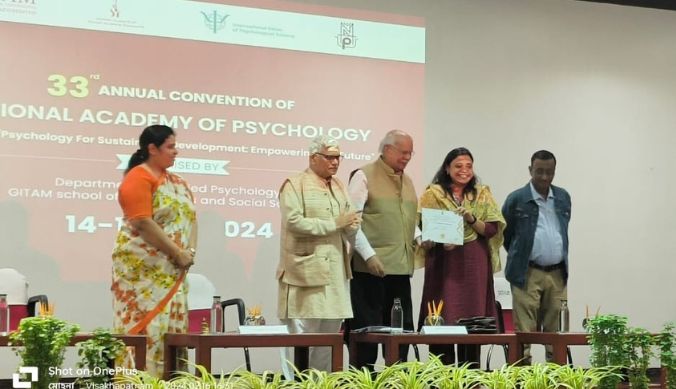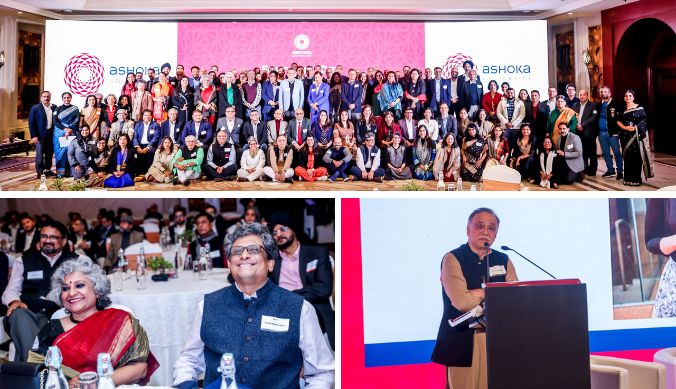TEDx comes to Ashoka University
The six speakers at the conference spoke on the theme ‘Filling the void’

Office of PR & Communications
1 September, 2015 | 9 min readBy Vidya Padmanabhan
September, 2015: Ashoka University hosted its first ever TEDx conference on August 31st, 2015. The speakers at the event represented diverse domains, ranging from the social sector, to academia, to new media, and even art and culture.
TED, which stands for Technology, Entertainment and Design, is a nonprofit devoted to spreading ideas, usually in the form of short, powerful talks (18 minutes or less). These talks cover almost all topics — from science to business to global issues — in more than 100 languages. TED is a global community, welcoming people from every discipline and culture who seek a deeper understanding of the world. The first TEDx event hosted at Ashoka University was organised by Young India Fellowship (YIF) alums Thanisha Sehgal and Ankit Gupta of the Class of 2015, with the help of the administration and staff at Ashoka.

The event commenced with a video screening of a TED talk given by Amy Cuddy on her journey as a researcher of nonverbal behaviour and how body positions could influence people’s perceptions. Cuddy is an Associate Professor of Business Administration at Harvard Business School, in the Negotiation, Organizations and Markets Unit. Her TED talk, posted in October 2012, has been viewed more than 27 million times and ranks second among the most-viewed TED talks.
The event then moved to six phenomenal speakers from different fields sharing with the audience their experiences and life journeys with regard to the underlying theme – ‘Filling the void’.
Mirai Chatterjee, an eminent social worker associated with SEWA (Self Employed Women’s Association), an NGO, was the first speaker for the day. She spoke about her journey at SEWA and the importance of empowering women. She shared her experiences on social security, health and child care.
Govind Ethiraj, a journalist and founder of the online multi- channel network, Ping Digital Broadcast, delivered his talk urging the audience to question a story/ media report on the basis of data and facts, rather than just taking them at face value. Himself a game changer in the world of broadcast and data journalism, Ethiraj staunchly pointed out – “Always ask, ‘Where is the data to back this media story’?”
Next in line was Mihir Shah, a former member of the Indian Planning Commission and a social worker. Dr. Shah spoke about the increasing gap between the rich and the poor in Indian society; the rich are getting richer and the poor are getting poorer. He further spoke about his organization, Samaj Pragati Sahayog (SPS), and its role in carrying forward the mainstream development model. He laid emphasis on the need for fair water policies and also highlighted the importance of institutional strength, women’s leadership and inclusion of all levels of the government to sustain development. His talk was indeed an eye opener for the audience.
Focusing on the importance of education along the same lines was Samir Sampath, a Project Manager at the Education Innovation Laboratory of Havard. He shared his experiences in filling the void in the education sector through his journey with the Indian School Leadership Institute, which was started by him.
The final speaker for the day was Nivedita Narain, the Programme Director at Pradan, a voluntary organisation working towards helping women to form self-help groups (SHG). SHG is usually a village-based financial intermediary committee composed of 10–20 local women or men. She discussed the concept of poverty with regard to the choices made by an individual and society. The essence of her lecture was that “to picture the change, one needs to change the picture”.
As the spellbound audience walked out of the auditorium after the sessions, pockets of discussion were triggered off – all these speakers had certainly given all the listeners much food for thought.
(The writer is a Young India Fellow, Class of 2016)













